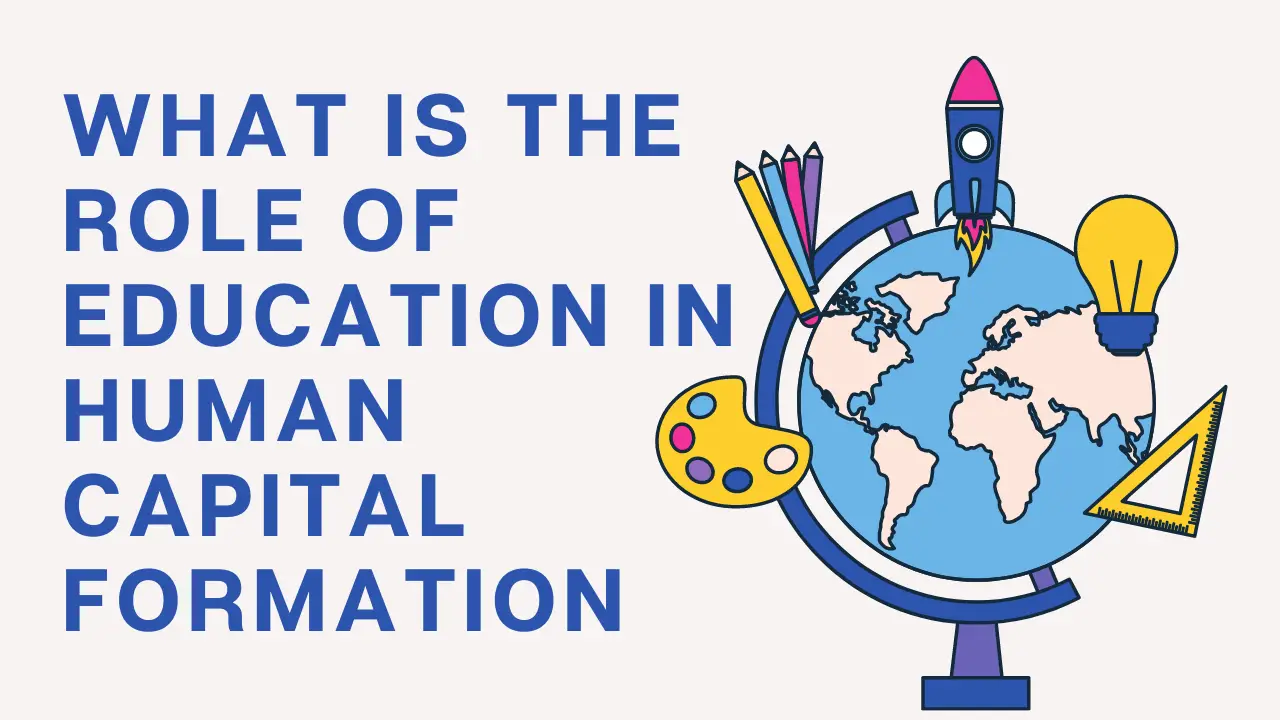What is the role of education in human capital formation
what is the role of health in human capital formation

Education has long been recognized as a major factor in the development of human capital. A well-educated workforce is essential for the economic development and competitiveness of the country. Education helps people acquire the necessary skills and knowledge to become productive citizens and contributes to the overall health and well-being of society. It is one of the most important investments a country can make in its future.
Education and human capital

Education is one of the most important investments a person can make in oneself. A good education can lead to increased earnings and opportunities later in life. Education also plays a role in human capital formation. Human capital is the knowledge and skills that people acquire through training and education. It includes both formal and informal education.
Formal education takes place in schools and other institutions, such as colleges and universities. This usually involves taking courses and passing exams. Informal learning occurs outside formal institutions, such as through work experience, volunteering, or simply through life experience.
Both formal and informal education contribute to the formation of human capital. Formal education provides opportunities for individuals to learn specific knowledge and skills. Informal education helps people develop soft skills, such as teamwork, communication, and problem-solving. These skills are vital to both personal development and professional success.
The role of education in human capital formation
Education is one of the most important factors in human capital formation. It helps people acquire the necessary skills and knowledge to become productive citizens and participate in the economy. A well-educated workforce is essential for the economic development and competitiveness of the country.
Investing in education is critical to ensuring that all members of society have the opportunity to reach their full potential and contribute to the economy. Education also plays a role in social mobility, which allows people to move up the socioeconomic ladder.
The importance of education for economic growth
Human capital is an important factor in the economic development of a country. Education is one of the most important investments in human capital and it pays off in the form of higher wages and increased productivity. A well-educated workforce is able to adapt to new technologies and work processes, leading to greater innovation and economic growth.
Education also has a positive effect on health, which is another important factor in economic development. Educated individuals are more likely to adopt a healthy lifestyle, which leads to lower health care costs and increased productivity.
Investment in education is essential for a country’s long-term economic success. A well-educated workforce will lead to higher wages, increased productivity and lower healthcare costs.
The returns to investment in education
A recent study by the Organization for Economic Cooperation and Development (OECD) found that, on average, each year of schooling is associated with a 10 percent return on investment. In other words, for each additional year of education a person receives, they can expect to earn 10 percent more over their lifetime.
This finding is in line with a large body of research that has shown significant economic benefits associated with investing in education. A 2013 study by economists at Georgetown University found that, on average, each year of a college education is associated with a return of about 15 percent.
The return on investment in education is even greater for individuals from disadvantaged backgrounds.
The impact of education on income inequality
Education is important for human capital formation. It helps individuals to acquire the necessary skills and knowledge to become productive members of society. A well-educated workforce is essential for the economic development and competitiveness of the country. Education also promotes social integration and increases social mobility. It is an important tool for eradicating poverty and promoting gender equality.
Conclusion: the role of education in human capital formation
Education has long been recognized as an important factor in human capital formation. The role of education in human capital formation has been studied by economists for many years. The basic idea is that educated workers are more productive workers and can thus earn higher wages. This, in turn, leads to higher levels of economic development.
A recent paper by economists from the University of Zurich finds that the relationship between education and human capital formation is more complex than previously thought.
FAQ
What are the benefits of education?
Education has long been considered an important part of human capital formation. The basic idea is that educated individuals are more productive and can earn more income than those who are not educated. As a result, education is seen as an important investment in human capital that can lead to higher economic growth. Although there is ample evidence that education leads to higher levels of productivity, the precise role of education in human capital formation is still debated by economists.
What are the key determinants of educational attainment?
Education is one of the most important investments a person can make in oneself. It is a major driver of economic growth and human capital formation. A well-educated workforce is essential for a country to compete in the global economy.
Education has the potential to not only improve an individual’s earning capacity, but also provide non-monetary benefits such as better health, less crime, and increased social and political participation.
A quality education system should provide opportunities for all students to develop their full potential and contribute to society.
| Homepage | Click Hear |



